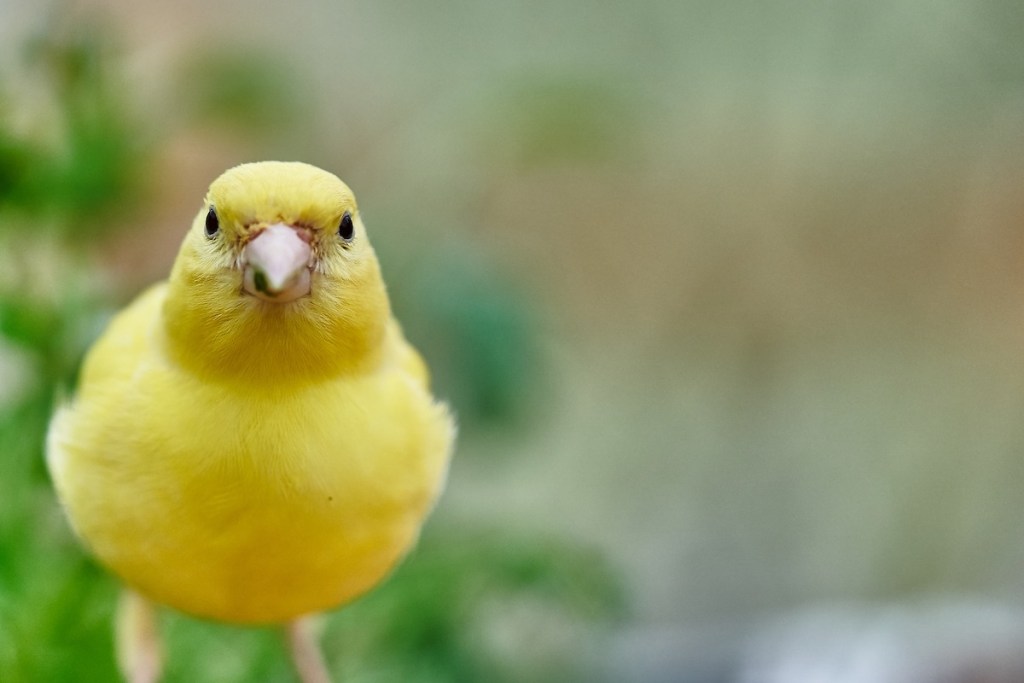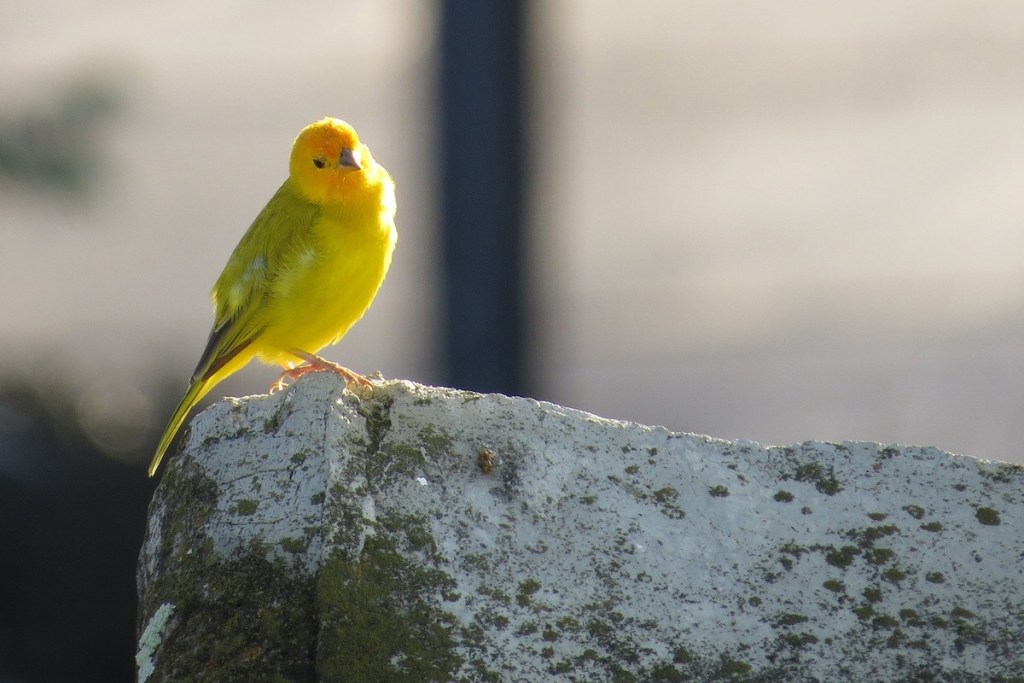We may not use our canaries in coal mines anymore, but these beautiful songbirds can still tell a moving story with their songs. Because most learn to sing from their parents or others in the flock, it can be difficult to get your little pet to serenade you if he lives a solitary life. Luckily for us, there are plenty of canary songs out there, which will give your bird a combination of a vocal coach and backup singer to whistle along to. Here are a few ways to encourage your bird to connect to his inner diva.

When will I first hear my canary singing?
With enough auditory stimulation, you might get your bird to start chirping as early as 3 months of age. But most birds will begin singing at the 6-month mark. These birds sing for two main reasons: when claiming territory and when attracting a mate. Because breeding season happens in the spring, that’s when you’ll hear your bird warbling up a storm. He’s looking for a partner to create the next generation — in fact, both the males and females help raise the young brood. However, you will probably also get a decent song when you first bring your bird home since he’s claiming his spot.
What’s the difference between males and females?
It can be difficult to differentiate between the sexes in canaries, especially before they reach maturity. Males do tend to sing a lot more than females and, for this reason, are sought after by bird owners. One way to ensure you get the right bird for your household is to wait until they’re about 6 months old, and then you can hear them sing for yourself. It’s not that you can’t get a lady bird to sing — with the right stimulation, you can. But the males generally give a stronger performance. Regardless of which gender you wind up owning, you can encourage your bird to warble with recordings or even by singing yourself.

Where can I find canary songs?
Get your bird to chorus up a storm by playing canary songs. For a solitary animal, this can help him discover his natural voice and will encourage him to sing all day long. You can find good songs on YouTube here or here.
Some pet stores also keep a particularly melodious canary around to help teach the younger birds a thing or two. Ask what your new bird’s been exposed to and vary his playlist up a bit to encourage different tunes. Don’t be afraid to add your voice to the mix, especially if you have a particularly hearty whistle. Some birds have a favorite type of music or artist, too. Play him a good mix until you find what strikes the right note.
What if my bird stops singing?
Your bird concerts will ebb and flow with the season, most likely peaking in spring and ceasing in late summer. Since your bird sings to impress the ladies, you will hear from him most frequently when he’s looking for his mate but infrequently during the molting season. Actually, you should expect him to stop entirely during his molt and don’t need to be concerned if that happens. Your canary’s too busy shedding to think about his next big hit. However, a lack of his pretty song at other times might also be a sign of illness if it occurs unexpectedly. Check in with your vet if you notice a decrease in chirping and suspect something is stressing your bird.
Canaries are a favorite because of that beautiful song, but even the most talented birds might need a little encouragement now and then. Have a few videos at the ready if you know you have company coming and want him to entertain. Also, while companion birds can encourage singing, many canaries are aggressive and should be kept separately. Males, in particular, can’t live together once they reach maturity and might think their territory stretches far beyond their cage. This can cause stress if you have multiple pets and they know another bird is nearby. During mating season, your male bird might stop his call if there’s a female around — he thinks he’s found his mate, after all. You can keep males and females apart to prevent this.



